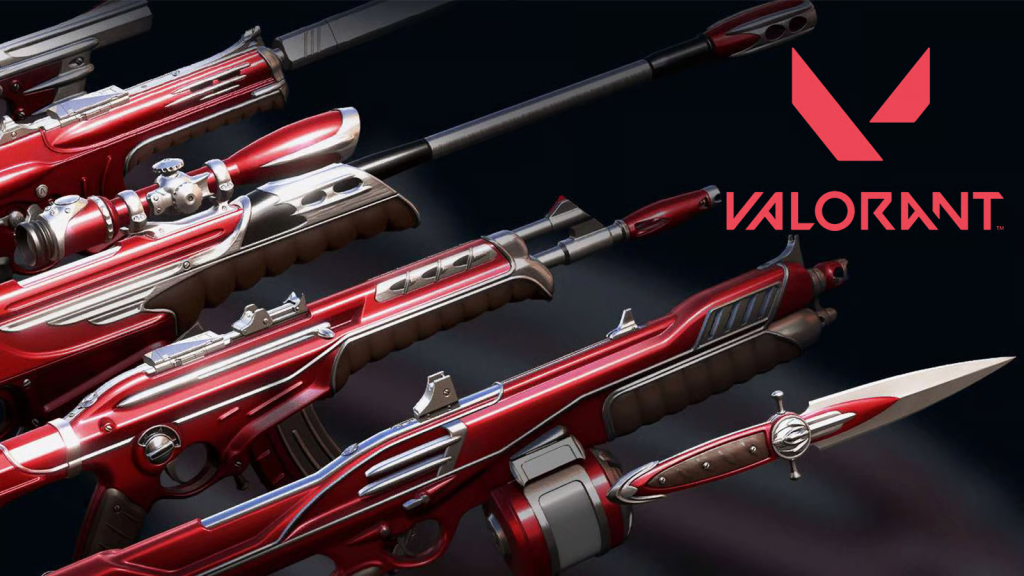If you’ve ever played CS:GO or CS2, you know how huge the skin trading scene is. Players buy, sell, and trade weapon skins like crazy, sometimes making serious money off rare items. So when Valorant dropped with expensive skins costing $70+ for a bundle, many players started asking: “Why can’t we trade these skins like in CS2?”
Riot Games has given a clear answer: Skin trading will NEVER come to Valorant. Not now, not later, never. Here’s why.
The Official Reason: No Loot Boxes, No Trading
Back in 2020, Joe Lee (Riot’s Revenue Lead for Valorant) explained the company’s position pretty straightforward. According to Riot, skin trading only makes sense in games where you get skins randomly from loot boxes.
In CS2, you open cases and get random items. You might get a common skin worth $0.50 or hit the jackpot with a rare knife worth thousands. Since it’s all random, players created a marketplace where they trade these items based on what they got lucky with.
But Valorant doesn’t work like that.
How Valorant’s Store Actually Works
In Valorant, you see a skin you want, you buy it directly. No gambling, no loot boxes, no random chance. You know exactly what you’re getting and exactly what you’re paying.
Want the Prime Vandal? It costs a specific amount. Want the whole bundle? Here’s the price. Simple.
Riot says this model is better because there’s “no randomness, no considerations for after-market speculation.” You’re not buying something hoping it increases in value later. You’re buying it because you like it.
The “Meaningful Representation” Argument
Here’s where Riot gets philosophical. They say skins in Valorant are supposed to represent YOU as a player, not just your wallet.
According to Joe Lee: “Skins in Valorant are designed to be meaningful representations of a player, whether they want to say ‘I was there,’ using an exclusive skin from an early battle pass, or they’ve managed to get a time-limited skin from the store.”
What does this actually mean? Basically:
- If you have the Season 1 Battle Pass skin, it shows you’ve been playing since the beginning
- If you have an old limited skin that’s no longer available, it proves you were around when it dropped
- Your skin collection tells YOUR Valorant story
If Riot added trading, any rich player could just buy an account with all the rare skins. That “I was there” feeling disappears when anyone can buy their way into it.
The Real Problem: It Becomes About Money
Riot’s concerned that allowing trading would turn skins into investments instead of cosmetics. Suddenly, players wouldn’t care about which skin looks cool or has the best animations. They’d only care about which one costs the most.
As Lee puts it: “Having a secondary market introduces a lot of complexity around what a skin means in-game, and oftentimes just makes it about who has the most expensive one.”
Look at CS2. Some players literally treat their inventories like stock portfolios. They track skin prices daily, flip items for profit, and measure their self-worth by how expensive their knife is. Riot doesn’t want that energy in Valorant.
What About CS2 Trading Economy?
CS2 trading scene is MASSIVE. There are entire websites dedicated to comparing skin prices across different marketplaces. Players use tools to track price changes, buy low, sell high, and make actual money.
Third-party sites like CS.MONEY, DMarket, ShadowPay, and Buff.163 handle millions of dollars in skin transactions. Some rare CS2 skins sell for tens of thousands of dollars. There are people who make a living just trading virtual weapon skins.
That sounds awesome, right? Well, it comes with problems:
- Scams are everywhere – Fake sites, phishing attempts, and scam bots are constant threats
- Account hacking – High-value inventories make accounts targets for hackers
- Market manipulation – People try to artificially inflate or crash skin prices
- Gambling sites – The trading economy enabled shady gambling sites that got kids addicted
- Money laundering concerns – Virtual items being used to move real money around
Riot looked at all this and said, “No thanks.”
But Players Still Want It
Despite Riot’s reasoning, plenty of players disagree. The complaints are real:
“I bought a skin but now a better one came out” – This happens all the time. You drop $30 on a Vandal skin, then next month Riot releases something even cooler. Now your old skin just sits in your inventory unused. If you could trade it, at least you’d get some value back.
“The prices are too high with no resale value” – When you buy a $70 Valorant bundle, that money is gone forever. In CS2, at least you can sell your skins later if you need the cash. Valorant skins are basically a money pit.
“I can’t afford to try different skins” – Some players want to experiment with different looks without spending hundreds of dollars. Trading would let you swap skins with friends or exchange ones you don’t use anymore.
The Workaround: Account Selling
Here’s the ironic part: Even though Riot banned trading, there’s still a secondary market. Players sell entire Valorant accounts with rare skins on third-party sites.
If you missed out on the Arcane Sheriff or the OG Champions 2021 skins, you can find accounts with those skins for sale. Riot says this violates their Terms of Service, but they can’t really stop it.
So in a way, the trading economy Riot wanted to avoid still exists. It’s just more dangerous because you’re trading entire accounts instead of individual skins.
Riot’s Alternative: Gifting
Riot did add one feature to help: You can gift skins to friends. It’s not trading, but at least you can buy something for someone else.
To gift a skin:
- Go to the in-game store
- Select a bundle or item
- Click the “GIFT” button below the buy button
- Choose your friend
- Complete the purchase
Your friend can accept or reject the gift. It’s a nice gesture, but it’s not the same as trading because you’re still spending real money with no way to get value back.
The Night Market: Riot’s Compromise?
A few times a year, Riot offers the Night Market – a personalized shop with 6 random skins at 10-49% off. It’s their way of saying “Here’s a deal, don’t complain about prices.”
The last Night Market in 2025 ran from September 25 to October 9. Players get excited when it drops, hoping their wishlist skins show up with big discounts.
But this still doesn’t solve the trading issue. You’re still buying with real money, and once you own a skin, you’re stuck with it forever.
Will Riot Ever Change Their Mind?
Short answer: Probably not.
Riot’s been consistent on this since 2020. They’ve built their entire monetization model around direct purchases, no randomness, no speculation. Changing it now would require rebuilding the whole system.
Plus, Riot’s making plenty of money with the current model. When you see expensive skins like the ORA bundle (potentially $500+) still selling, they have no financial reason to change.
The Bottom Line
Riot refuses to add skin trading to Valorant because:
- Their business model doesn’t need it – No loot boxes means no reason for trading
- They want skins to represent you – Not just show how much you spent
- They’re avoiding CS2 problems – Scams, gambling sites, and toxic “who has the most expensive skin” culture
- It keeps skins exclusive – Limited skins stay rare instead of being bought and sold freely
- They’re already making bank – The current system works financially
Whether you agree with Riot’s logic or not, one thing’s clear: if you want a Valorant skin, you better be ready to open your wallet and commit. There’s no trying before buying, no flipping for profit, and no getting your money back.
That $70 Phantom bundle? That’s yours forever.
What Can You Do?
Since trading isn’t coming, here are your realistic options:
- Wait for the Night Market – Hope your skins show up at a discount
- Only buy what you really love – Don’t impulse buy every new bundle
- Use the Battle Pass – Better value than store bundles
- Ask friends to gift you – For birthdays or special occasions
- Accept it’s cosmetic only – Remember, skins don’t affect gameplay
At the end of the day, Riot’s made their choice. Valorant will never have skin trading, and they’re sticking to it. Love it or hate it, that’s just how it is.

Taylor Wynn is an esports betting columnist and digital wagering expert focused on emerging online gambling markets. Tracking esports odds across major leagues—from CS2 to League of Legends—Taylor offers insight into odds movement, bookmaker trends, and new player bonuses. Their work highlights the rapid evolution of online sportsbooks and the future of digital wagering experiences.






